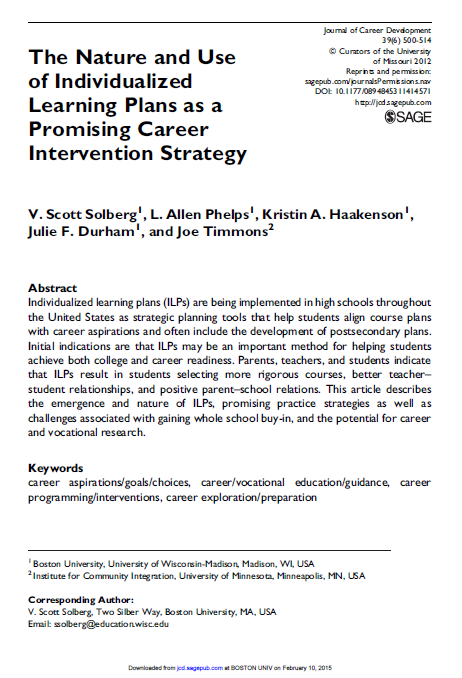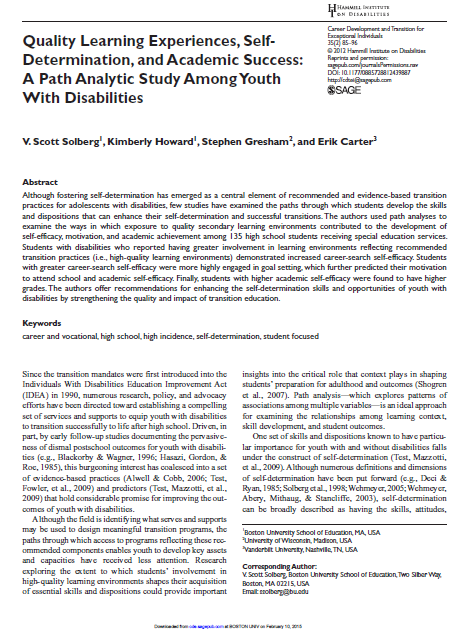Publications
Menu

Individualized learning plans (ILPs) are being implemented in high schools throughout the United States as strategic planning tools that help students align course plans with career aspirations and often include the development of postsecondary plans. Initial indications are that ILPs may be an important method for helping students achieve both college and career readiness. Parents, teachers, and students indicate that ILPs result in students selecting more rigorous courses, better teacher–student relationships, and positive parent–school relations. This article describes the emergence and nature of ILPs, promising practice strategies as well as challenges associated with gaining whole school buy-in, and the potential for career and vocational research.

Although fostering self-determination has emerged as a central element of recommended and evidence-based transition practices for adolescents with disabilities, few studies have examined the paths through which students develop the skills and dispositions that can enhance their self-determination and successful transitions. The authors used path analyses to examine the ways in which exposure to quality secondary learning environments contributed to the development of self-efficacy, motivation, and academic achievement among 135 high school students receiving special education services. Students with disabilities who reported having greater involvement in learning environments reflecting recommended transition practices (i.e., high-quality learning environments) demonstrated increased career-search self-efficacy. Students with greater career-search self-efficacy were more highly engaged in goal setting, which further predicted their motivation to attend school and academic self-efficacy. Finally, students with higher academic self-efficacy were found to have higher grades. The authors offer recommendations for enhancing the self-determination skills and opportunities of youth with disabilities by strengthening the quality and impact of transition education.